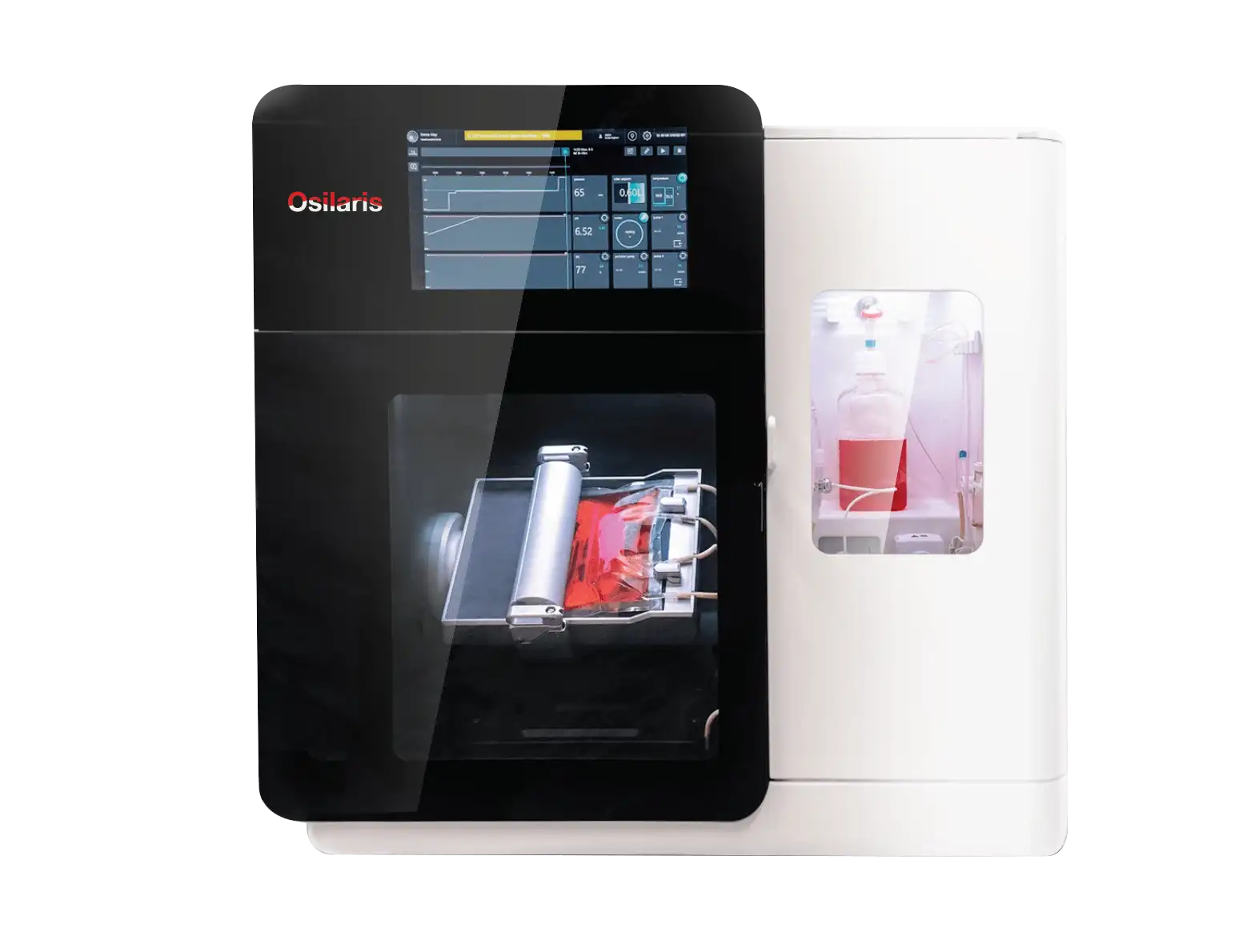Controlling Growth
with

Scalable Cell Expansion Solutions for Cell Therapy Manufacturing
Explore the Osilaris™ platform

At Scinus Cell Expansion, we simplify and automate cell cultivation across a wide range of cell types and protocols.
Osilaris™ is a closed, automated bioreactor platform designed for high-fold expansion of adherent and suspension cells, supporting several applications in cell therapy, such as MSC expansion, iPSCs and T cells.
We simplify decentralized cell therapy manufacturing with an efficient, cost-effective and scalable platform.
No Passaging, Less Handling
Expand cells from start to finish without transfers. Particularly valuable for adherent cultures such as MSCs, where trypsinization is minimized
Scale Without the Hassle
Take your process from research scale to clinical volumes in the same system, no need to switch platforms.
Cost-Efficient Growth
Lower manual handling and operating costs. Saving time and reducing contamination risks, while keeping quality consistent.
Designed Around Your Cells
Adaptable to many cell types, including MSCs and other adherent cells. Flexible parameter control ensures your therapy drives the process, not the other way around.
"Scinus' bioreactor is the only system that offers a process compatible with patient-specific expansion of periosteum-derived cells for large bone defects"
We evaluated different and industry standard fixed-bed systems in the past, but the Scinus Cell Expansion platform has proven superior and now represents our gold standard technology. What sets the Scinus system apart is its remarkably low medium requirements, achieving unprecedented-fold expansion in a single, volume-expandable passage. The entire operation can be performed by one person, thanks to the system's intuitive handling and streamlined cell harvesting process.
Professor Liesbet Geris
Prometheus Division of Skeletal Tissue Engineering KU Leuven

